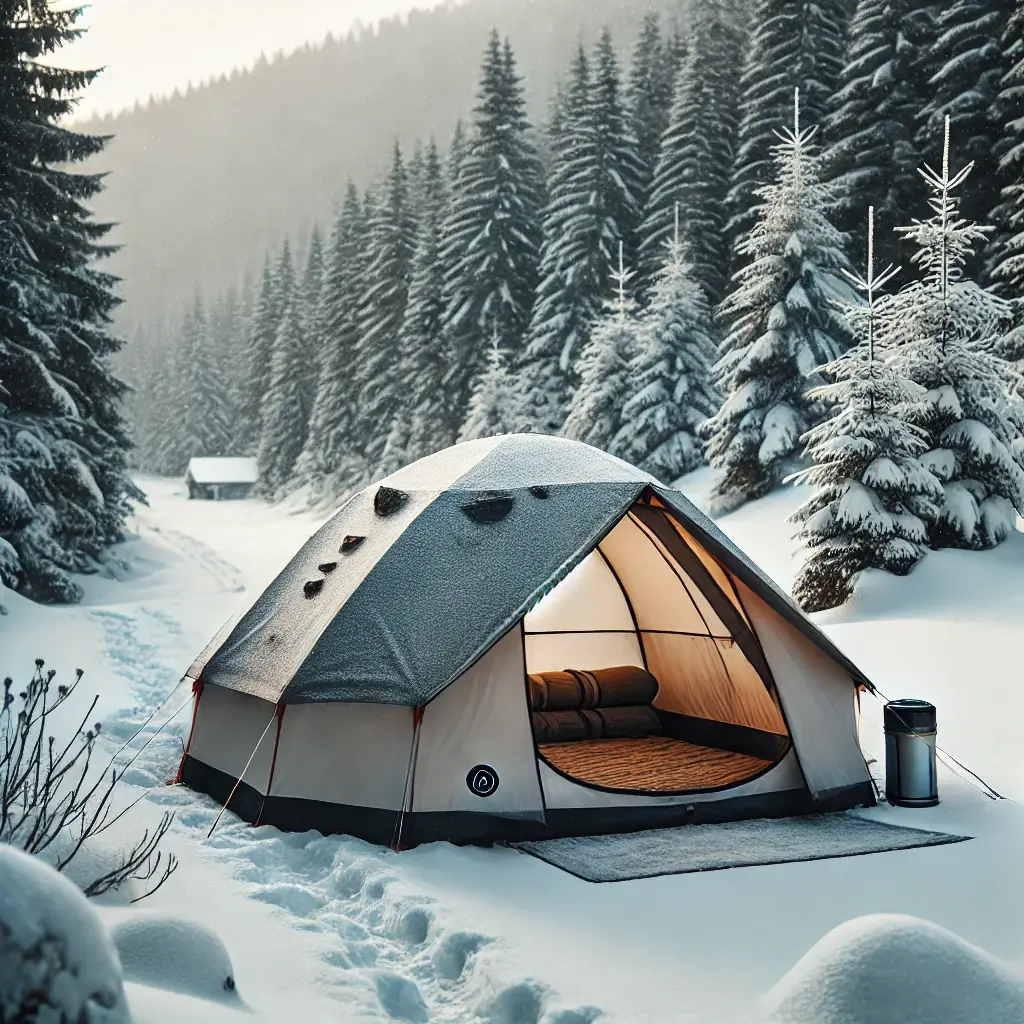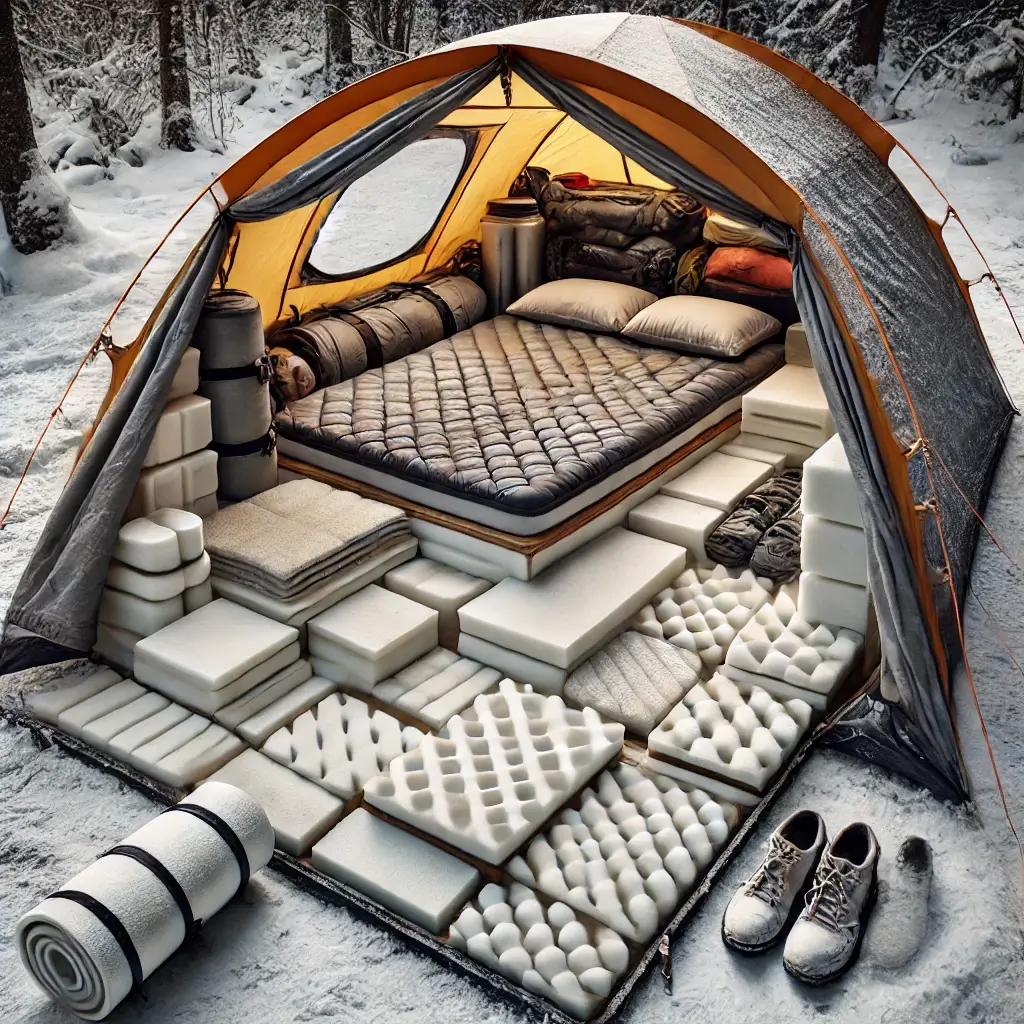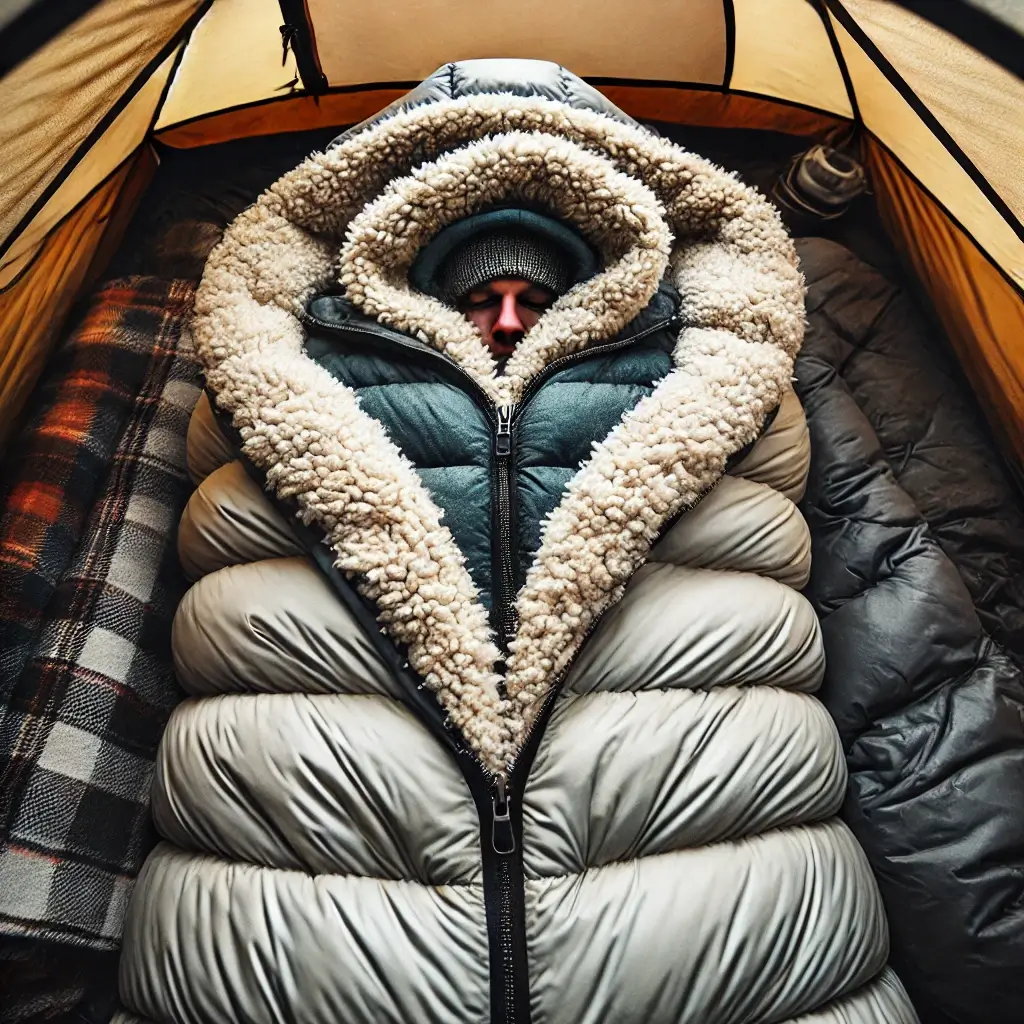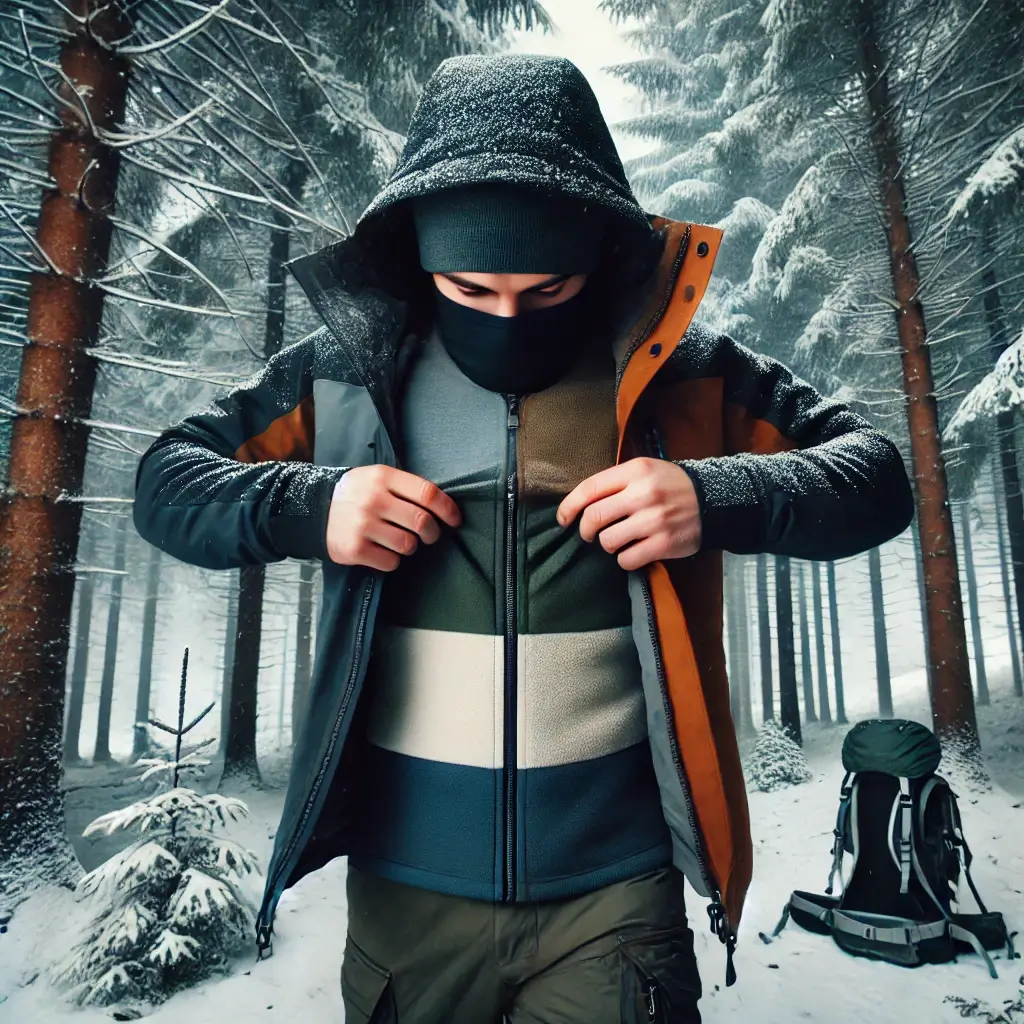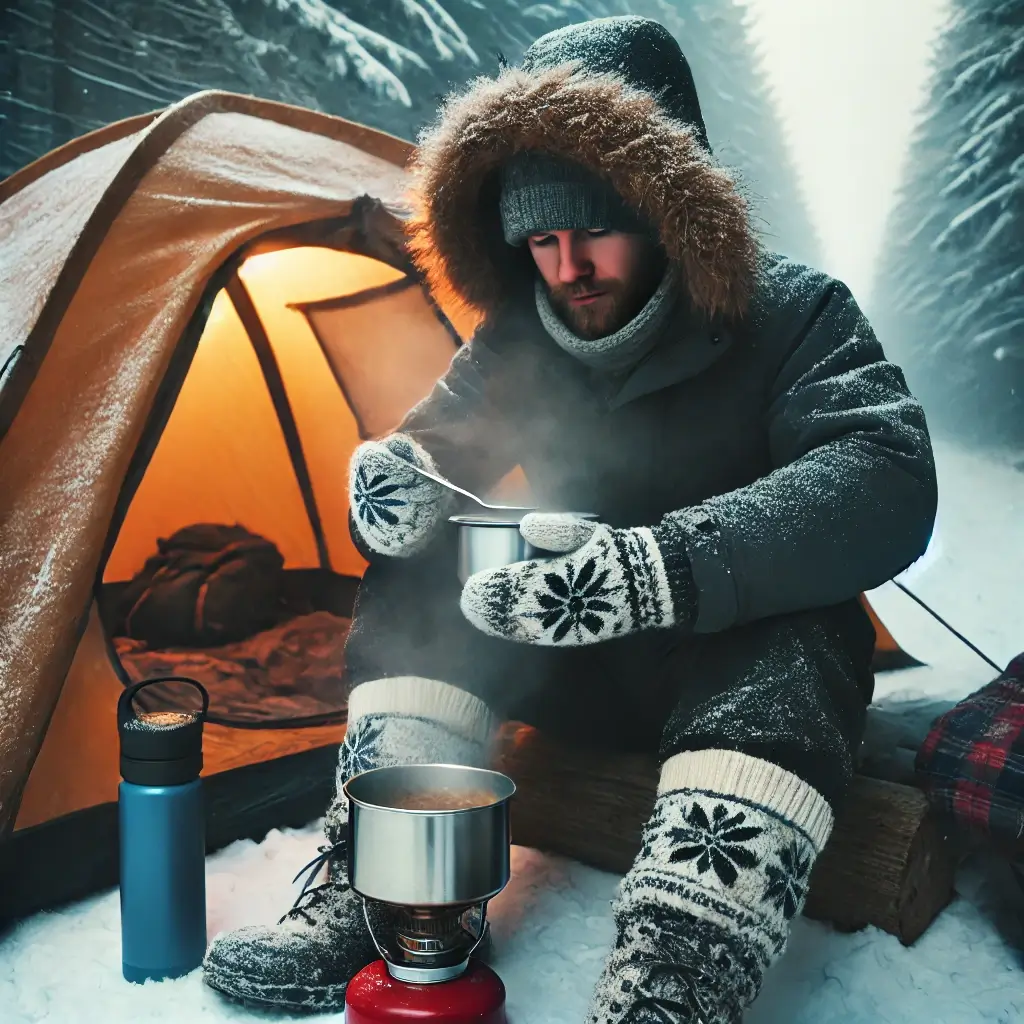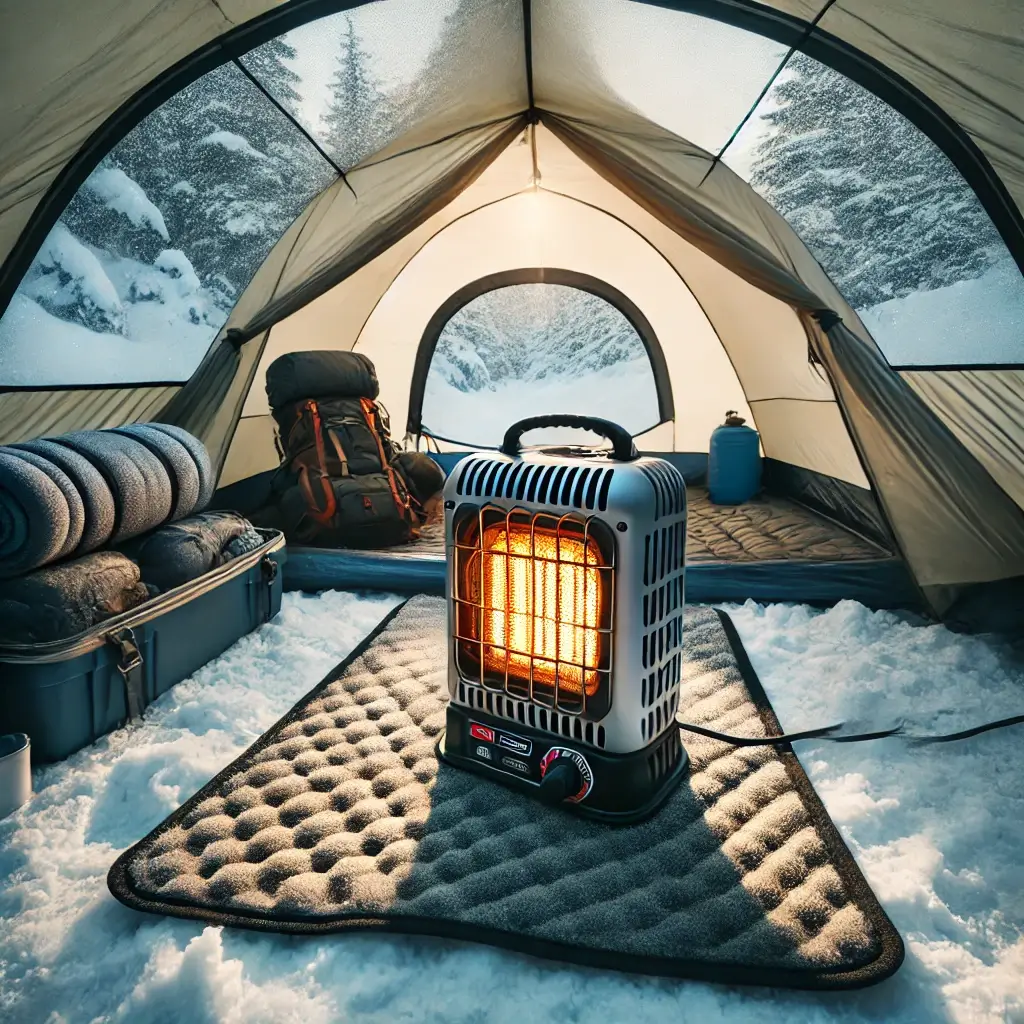Winter tent camping can be an exhilarating experience, offering beautiful snow-covered landscapes, peaceful solitude, and crisp, clean air. But cold temperatures can quickly turn dangerous if you’re unprepared. In this guide, we’ll cover essential tips to help you stay warm, comfortable, and safe while tent camping in winter.
Choose the Right Tent for Winter Camping
The first step to staying warm while camping in the winter is choosing the right shelter. Not all tents are made for extreme conditions, so you’ll need to ensure your tent can handle cold temperatures, wind, and snow.
- 4-Season Tents: Unlike 3-season tents, which are designed primarily for spring, summer, and fall, 4-season tents are built to withstand winter’s harsh conditions. These tents feature sturdier poles, thicker fabrics, and fewer mesh panels to keep out the cold.
- Double-Walled Construction: Opt for a tent with double walls to provide extra insulation and reduce condensation inside the tent.
- Ventilation: Even though it’s cold, proper ventilation is essential to prevent condensation. Look for tents with adjustable vents that can help manage moisture without letting in too much cold air.
Insulate Your Tent Against the Cold
Once you have the right tent, you need to insulate it properly to keep the cold out and the warmth in. Here are some practical insulation tips:
- Ground Insulation: Cold air rises from the ground, so insulating your tent floor is crucial. Use a thick, insulated sleeping pad or layer reflective emergency blankets between the ground and your sleeping area to reflect your body heat.
- Foam Mats or Rugs: Placing foam mats or rugs inside your tent can add an extra layer of warmth and prevent cold from seeping through the floor.
- Tent Footprint: Using a footprint beneath your tent helps create a barrier between the cold ground and your shelter.
Invest in a High-Quality Sleeping Bag
Your sleeping bag is the most important piece of gear when it comes to staying warm while tent camping in winter. A high-quality, winter-rated sleeping bag is non-negotiable.
- Temperature Rating: Look for a sleeping bag that’s rated at least 10°F lower than the lowest temperatures you expect to encounter. For extreme cold, consider sleeping bags rated for sub-zero temperatures.
- Mummy Bags: Mummy-style sleeping bags are ideal for winter camping because they fit snugly around your body, reducing the amount of space your body needs to heat.
- Sleeping Bag Liners: Adding a liner to your sleeping bag can increase warmth by 10-15°F. Fleece or silk liners are lightweight and packable.
Layer Your Clothing Properly While Winter Tent Camping
Layering your clothing is key to regulating your body temperature while camping in cold weather. Here’s how to layer effectively:
- Base Layer: Start with moisture-wicking materials like merino wool or synthetic fabrics that pull sweat away from your skin, keeping you dry and warm.
- Mid Layer: This is your insulation layer. A fleece jacket or down sweater works well to trap body heat.
- Outer Layer: Your outer layer should be a waterproof and windproof jacket to protect you from the elements. Choose a breathable fabric like Gore-Tex to prevent sweating.
Pro Tip: Avoid cotton clothing since it retains moisture, which will make you feel colder.
Keep Warm at Night with Hot Water Bottles
A simple and effective trick to stay warm during cold nights is using a hot water bottle inside your sleeping bag.
- How It Works: Boil water before bed and pour it into a heat-safe water bottle. Place the bottle near your core or at the foot of your sleeping bag to provide radiant heat throughout the night.
- Alternative: Chemical hand warmers can also be placed in your sleeping bag or pockets to keep extremities warm.
Eat High-Calorie Foods to Stay Warm
Your body burns more calories in cold weather to keep warm, so it’s essential to fuel up before and during your camping trip.
- Pre-Sleep Snack: Eating a high-calorie snack, like nuts, cheese, or chocolate, before going to sleep gives your body fuel to generate heat throughout the night.
- Hot Meals: Cooking hot meals like soups, stews, or pasta helps warm your core and keeps your energy levels high during cold weather.
Don’t Forget to Stay Hydrated
Even in cold weather, hydration is crucial. Cold air can dehydrate you just as quickly as hot air, and staying hydrated helps regulate your body temperature.
- Tip: Keep your water bottle inside your sleeping bag overnight to prevent it from freezing. Insulated bottles or hydration packs with insulated hoses also help keep your water from freezing during the day.
Use a Tent Heater (Safely)
If you’re camping in extreme cold, consider using a portable tent heater. However, safety is critical when using any kind of heater inside your tent.
- Propane Heaters: Portable propane heaters like the Mr. Heater Buddy are popular for winter camping. Just ensure they are safe for indoor use and have oxygen depletion sensors (ODS).
- Battery-Powered Heaters: For a safer, low-power option, consider battery-powered heaters or heated blankets.
Pro Tip: Always ensure proper ventilation and never sleep with a heater running inside your tent.
Conclusion: Embrace the Chill and Stay Warm
With the right gear and preparation, winter tent camping can be an incredibly rewarding experience. Follow these tips to stay warm and safe while enjoying the beauty and tranquility of the winter wilderness.
Whether you’re an experienced camper or heading out for your first cold-weather adventure, remember that staying warm is key to having a great time. For more gear recommendations and tips, check out our article on [Winter Camping Gear Essentials].


